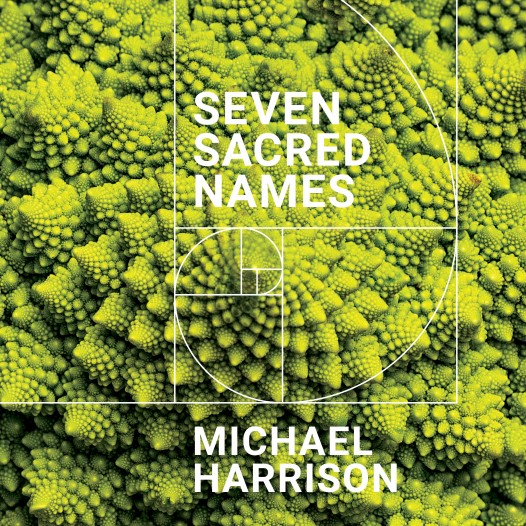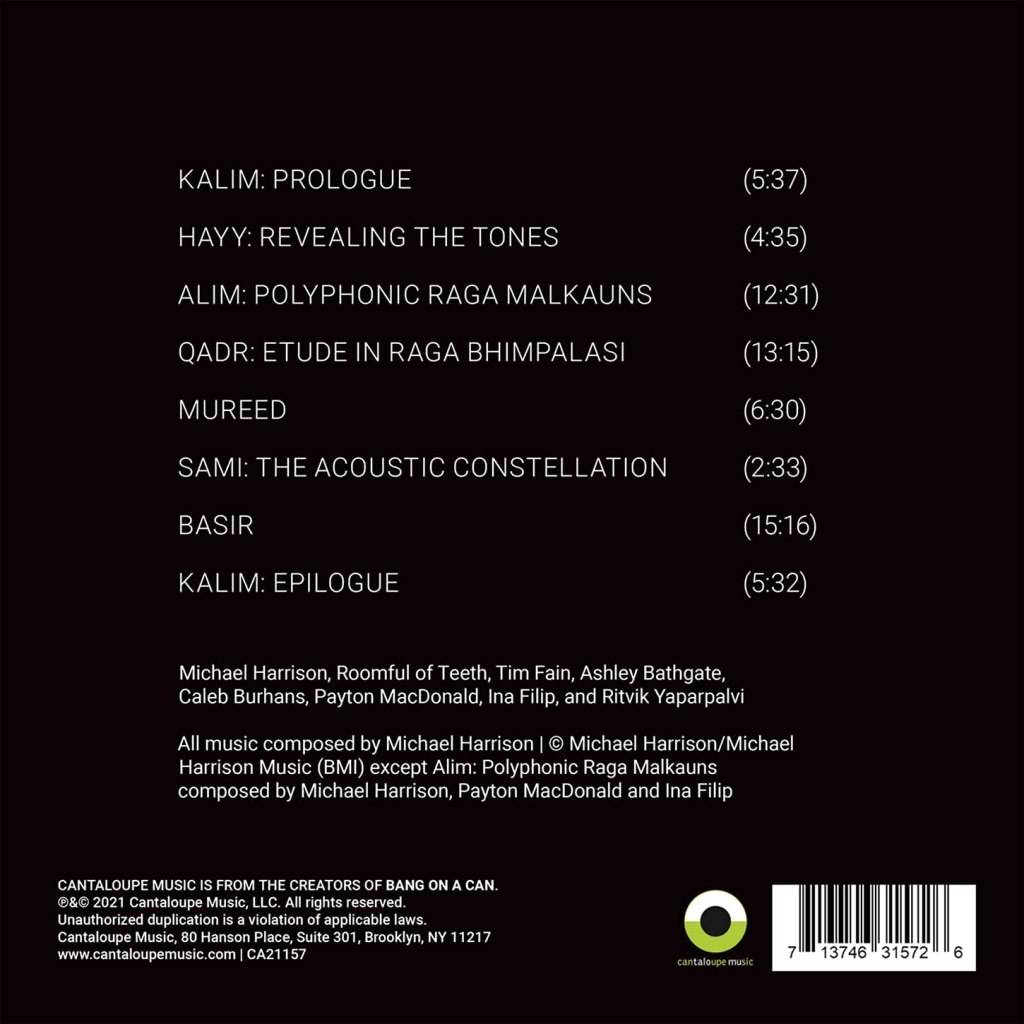
Had to save this one for Christmas. If ever there was an album that conjures more of the positive intents of the Christmas season this one gets my vote. Imagine celebrating a living acknowledged master artist in a milieu of his actual and artistically extended family. That may seem an extreme notion to some but this writer is utterly charmed and thrilled to hear this “one of a kind” collection. Other interpretations will, of course, be valid but none will ever match this one. It’s like the Carter family of the avant-garde (and I mean that unambiguously with great respect).
Any release by Bay Area pianist Sarah Cahill is reason enough alone to perk up one’s ears but this massive four disc collection of all new recordings in honor of Terry Riley’s 80th birthday (Terry was born in 1935) is a major release of (almost) all of Riley’s music for piano, piano four hands and two pianos. In addition two of the discs are dedicated to pieces commissioned in honor of Riley. This set belongs in the collection of anyone interested in mid to late twentieth century music and especially fans of minimalism and the curiously west coast iterations of modernism.
As a listener I have always treated every Terry Riley release as a major event as well and this collection does about as fine a job as one can imagine in paying homage to one of the brightest artistic lights of the Bay Area. Riley came to prominence (at least historically speaking) with his open score piece, In C (1964). It is among the earliest examples of the style which, for better or worse, became known as “minimalism”. Since then he has continued to produce music in pretty much all genres, chamber music, orchestral music, solo music, concerti, etc.
Riley’s style, however, continued to evolve and his later works show diverse influences from his days playing barrel house piano, his interest in progressive jazz, and his studies of Hindustani and Carnatic musics (under the tutelage of Pandit Pran Nath). Like pretty much every composer of that first wave of “minimalists” Riley has evolved a much deeper and individualized style but, even with the diversity of influences as mentioned, he remains uniquely Terry Riley.
Throughout his career as composer and performer Terry has been a teacher and an advocate of new music. His enthusiasm and talent has affected all who know him and, I dare say, all who have experienced his work.
This collection ranges over his entire career from the early “Two Pieces” (1958/9) to later solo and four hand compositions on the first two discs. It is worth noting that Be Kind to One Another (2008/14) was one of the commissions in Sarah Cahill’s wonderful series of anti-war pieces, “A Sweeter Music”. It then goes on to the homages which, of course, can also be said to be influenced by Riley’s work.
This is not simply a collection of Riley’s piano music. What we have here is a lively celebration of most of Riley’s music for piano, two pianos and piano four hands from the full spectrum of his career (as the liner notes say a couple of large compositions were not included, most likely a matter of space) along with a touching set of homages by composers related musically and aesthetically to Mr. Riley. They range from contemporaries to students, artistic descendants to actual family. It is a multi-generational tribute and a loving artifact that celebrates this artist on a very personal level.
Regina Myers supplies the other two hands in the disc of four hand piano pieces by Riley. She credits another Bay Area composer/teacher/conductor, the Mills College based Steed Cowart for recommending her for this crucial role. Such touches add to the sense of this being a Bay Area family project on so many levels.
The interrelationships that comprise this lovely production make it stand distinctly apart from the (no less significant or lovely) homages to fellow minimalists Philip Glass and Steve Reich. This is a much more personal album which reflects Riley as composer, teacher, inspiration, father, icon and friend. Anyone who has met Terry or experienced him in performance has experienced a certain warmth like that of a wise and gentle guru.
After the two discs of Riley’s music we are treated to music inspired by another generation of artists and, last, by long time colleague, the late great Pauline Oliveros (1932-2016), another wise and gentle guru who died just about a year before the release of this album. She and Terry worked together (along with Morton Subotnick, Ramon Sender, Steve Reich, William Maginnis, and Tony Martin) as founders of the San Francisco Tape Music Center which would become the Mills College Center for Contemporary Music (still operating today). The producers wisely dedicated an entire disc to one of Oliveros’ last compositions, this loving tribute to her friend and colleague. It is now, sadly, a tribute to her memory as well. Samuel Adams shares the performing duties along with Ms. Cahill on this extended homage.
There is little doubt that the other composers whose music graces this tribute will continue on their unique paths to continued success always acknowledging their connections to Mr. Riley. Danny Clay is among the less familiar (to this reviewer) names here but his Circle Songs seem to fit quite well to open the first tribute disc. Gyan Riley is, of course, one of Terry’s children and a fine guitarist and composer in his own right. Anyone who has had the pleasure of seeing Gyan and Terry play together cannot miss the close bond personally and musically of these two. They are a joy to behold. The affectionate Poppy Infinite is a reference to the elder Riley’s Poppy Nogood’s Phantom Band which was the “B side” of his classic Rainbow in Curved Air. Samuel Adams is the son of Pulitzer Prize winner John Adams whose early work China Gates was written for and championed by his fellow classmate at the San Francisco Conservatory, Sarah Cahill. The younger Adams’ contribution here is called Shade Studies.
The eclectic Christine Southworth also seems to embody the (perhaps loosely defined) West Coast style. Her interests in electronics and world music describe this superficially but her sound is a welcome one here as well. Keeril Makan earned his PhD. in music at Berkeley which doubtless has left a stamp on his style. His composition “Before C” makes reference to what is doubtless Terry Riley’s best known work, the oft performed, “In C”. Elena Ruehr is a composer whose connection is not as clear as some of the others here but her work, “In C too” demonstrates her understanding of and her respect for Riley’s work. Last on this disc of tributes is Dylan Mattingly. He is a Berkeley native and can frequently be seen/heard performing in various venues in the Bay Area. His contribution YEAR demonstrates both his individual style and his connection to the West Coast Style mentioned earlier.
The liner notes by Sarah Cahill are part of the tribute and a good description of the various influences behind the man of the hour, Terry Riley. Credit is properly given to the artistic influences that inspired Mr. Riley and a brief description of what must have been an intimidating but loving project. It is likely that there are even more connections involved in this undertaking but that must be left to future musicological and historical research.
The Kronos Quartet has long ago championed Riley’s work for that medium and new versions of his classic, “In C” continue to come on the scene. One can only hope that the energy embodied here will inspire recordings of some of Riley’s lesser known work with orchestra which richly deserves hearings. But regardless there is much to celebrate here and best holiday wishes go out to Mr. Riley and his talented progeny. Happy listening, all.


